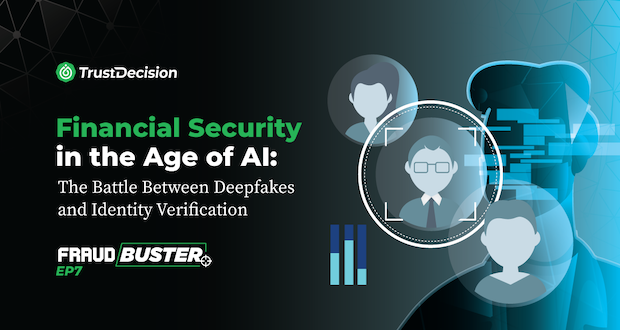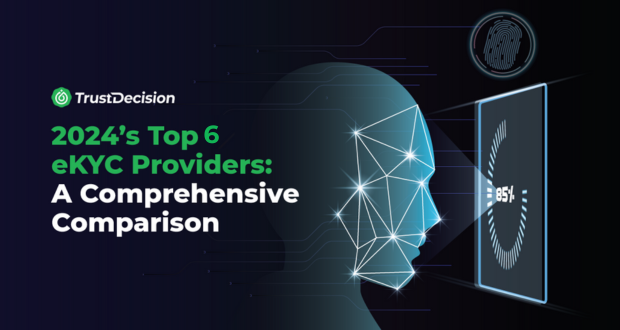What is Digital Onboarding?
Definition and Scope
Digital onboarding refers to the process of using digital technologies to bring new customers or clients into a business's ecosystem. This involves verifying their identity, collecting necessary information, and ensuring compliance with regulatory requirements, all through online platforms. The scope of digital onboarding extends across various industries, with significant applications in banking, financial services, and corporate sectors.
Key Components of the Digital Onboarding Process
Initial Customer Interaction: Engaging with potential customers through digital channels such as websites, mobile apps, or social media.
Data Collection and Verification: Gathering necessary personal and financial information and verifying it using digital tools.
Compliance Checks (KYC, AML): Ensuring that the customer meets all regulatory requirements, including Know Your Customer (KYC) and Anti-Money Laundering (AML) checks.
Customer Approval and Account Setup: Finalizing the onboarding process by approving the customer and setting up their account or service access.
Benefits of Digital Onboarding
For Businesses:
- Streamlines the onboarding process, reducing time and operational costs.
- Enhances compliance with regulatory standards.
- Improves data accuracy and reduces manual errors.
- Increases customer acquisition and retention rates.
For Customers:
- Provides a faster and more convenient onboarding experience.
- Reduces the need for physical paperwork and in-person visits.
- Ensures a secure and transparent process.
- Enhances overall satisfaction and trust in the service provider.
The Digital Onboarding Process
The digital onboarding process is a pivotal stage in establishing a seamless relationship between an organization and its users. Let’s delve into the intricacies of each step:
Initial Customer Interaction
When a potential customer expresses interest in a product or service, the initial interaction occurs. This touchpoint can take various forms, such as visiting a website, downloading a mobile app, or making an inquiry. It sets the tone for the entire onboarding journey.
Data Collection and Verification
During this phase, organizations collect essential information from users. This includes personal details (name, address, contact information) and often extends to identity verification. Robust data collection ensures accuracy and completeness, while verification processes confirm the legitimacy of the provided data.
Compliance Checks (KYC, AML)
- Know Your Customer (KYC):some text
- KYC procedures involve verifying the identity of users to prevent fraud, money laundering, and other illicit activities.
- Organizations validate user identities using documents (such as passports or driver’s licenses) and biometric data.
- Compliance with KYC regulations is crucial for maintaining trust and security.
- Anti-Money Laundering (AML):some text
- AML checks focus on detecting and preventing money laundering.
- By monitoring financial transactions, organizations identify suspicious patterns and report them to regulatory authorities.
- A robust AML framework safeguards against financial crimes.
Customer Approval and Account Setup
Once data is verified and compliance checks are complete, users receive approval for account creation. This step involves setting up login credentials, configuring preferences, and granting access to digital services. A seamless process ensures a positive user experience and encourages continued engagement.
Importance of a Seamless Digital Onboarding Process in Financial Services
In the financial sector, a well-executed digital onboarding process offers several advantages:
- Customer Satisfaction: A smooth journey fosters satisfaction and encourages long-term relationships.
- Efficiency: Streamlining administrative tasks reduces overhead and accelerates customer acquisition.
- Risk Mitigation: Proper identity verification minimizes fraud risks.
- Regulatory Compliance: Meeting legal requirements builds trust and transparency.
Digital Onboarding in Banking
As digital transformation reshapes the banking industry, the process of customer onboarding has evolved significantly. Traditional in-person methods are giving way to digital onboarding solutions, which offer efficiency, security, and personalized experiences for clients. Here’s what you need to know:
What is Digital Onboarding in Banking?
Digital onboarding refers to creating a seamless and efficient customer experience using digital technology. It involves leveraging online tools and platforms to collect and verify information, ensure identity verification, and provide access to banking services. Customers can now open accounts, apply for loans, and access banking services remotely, eliminating the need for physical branch visits. Tools like digital identity verification, facial recognition, and biometric authentication ensure accurate and secure verification. Once verified, customers can manage accounts, make transactions, and access services via online banking and mobile apps.
Successful Case Studies
Backbase: One notable example of successful digital onboarding in banking is Backbase, which offers an innovative Engagement Banking Platform. This platform helps banks transition from traditional systems to modern customer engagement architectures, accelerating their digital transformation. Backbase's platform includes features such as identity management, process automation, and seamless integrations, enabling banks to provide a superior onboarding experience.
Other Solutions: Several other digital onboarding solutions have also proven successful in the banking sector. Platforms like FIS Digital One, Fiserv Digital Banking, Infosys Finacle Core Banking Solution, nCino, NCR Voyix Digital Banking, Oracle Banking Digital Experience, and Q2 offer unified digital banking platforms that cater to consumer, retail, and business banking needs. These platforms enable financial institutions to deliver modern services that meet the evolving expectations of their customers.
In conclusion, digital onboarding is revolutionizing the banking industry by providing a more efficient, secure, and customer-friendly approach to onboarding new clients. By leveraging advanced technologies and innovative solutions, banks can enhance customer satisfaction, reduce operational costs, and stay competitive in an increasingly digital world.
Effective Digital Onboarding Solutions
Leading Digital Onboarding Solutions
The market for digital onboarding solutions is rapidly evolving, with numerous providers offering innovative tools to streamline the onboarding process. Leading solutions often incorporate a combination of biometric verification, artificial intelligence (AI), machine learning, and blockchain technology to enhance security, efficiency, and compliance. These solutions are designed to cater to various industries, with a particular focus on banking and financial services.
For instance, some platforms offer end-to-end onboarding capabilities, from initial customer interaction to final account setup. These solutions typically include features such as document scanning, e-signatures, and real-time risk assessment. Others focus on specific aspects of the onboarding process, such as identity verification or compliance checks, providing specialized tools that can be integrated into broader systems.
Criteria for Selecting the Right Digital Onboarding Solution
Choosing the right digital onboarding solution is crucial for ensuring a seamless and efficient process. Here are some key criteria to consider:
Security and Compliance: The solution must offer robust security features to protect sensitive customer data and ensure compliance with regulatory requirements such as KYC and AML. Look for solutions that use advanced encryption, biometric verification, and real-time risk assessment.
User Experience: A user-friendly interface is essential for providing a positive customer experience. The solution should be intuitive and easy to navigate, minimizing the steps required for onboarding and reducing the likelihood of customer drop-off.
Customization and Flexibility: The ability to customize the onboarding process to meet specific business needs is important. The solution should offer flexible workflows that can be tailored to different customer segments and regulatory environments.
Integration Capabilities: The solution should seamlessly integrate with existing systems, such as customer relationship management (CRM) platforms, core banking systems, and compliance databases. This ensures a smooth flow of information and reduces the need for manual data entry.
Scalability: As your business grows, the onboarding solution should be able to scale accordingly. Look for solutions that can handle increasing volumes of customers and adapt to changing regulatory requirements without compromising performance.
Integration with Existing Systems and Scalability
Effective integration with existing systems is a critical factor in the success of a digital onboarding solution. The chosen solution should be compatible with your current technology stack, allowing for seamless data exchange and process automation. This integration minimizes disruptions and ensures that the onboarding process is efficient and error-free.
Scalability is equally important, particularly for businesses in the banking and financial services sectors. As customer volumes increase, the onboarding solution must be able to handle the additional load without compromising performance. Scalable solutions often leverage cloud-based infrastructure, which provides the flexibility to adjust resources based on demand. This ensures that the onboarding process remains smooth and efficient, even during peak periods.
In conclusion, selecting the right digital onboarding solution involves evaluating various factors, including security, user experience, customization, integration capabilities, and scalability. By carefully considering these criteria, businesses can implement a solution that not only streamlines the onboarding process but also enhances customer satisfaction and compliance.
KYC++: Comprehensive Digital Onboarding Solution
TrustDecision's KYC++
TrustDecision's KYC++ is an advanced digital onboarding solution designed to meet the rigorous demands of the financial services industry. This comprehensive platform leverages cutting-edge technologies to streamline the onboarding process, enhance security, and ensure compliance with regulatory standards. By integrating advanced Know Your Customer (KYC) protocols, TrustDecision's KYC++ addresses the critical need for accurate and efficient customer verification in the digital age.
The importance of advanced KYC in digital onboarding for financial services cannot be overstated. As regulatory requirements become increasingly stringent, financial institutions must adopt robust solutions that can handle complex compliance checks while providing a seamless customer experience. TrustDecision's KYC++ excels in this regard, offering a powerful combination of automated identity verification, real-time risk assessment, and global coverage.
Automated Identity Verification
One of the standout features of TrustDecision's KYC++ is its ability to automate identity checks. This feature significantly streamlines the digital onboarding process by reducing the need for manual intervention. By using advanced technologies such as biometric verification and document scanning, the platform ensures that identity verification is both accurate and efficient. This not only speeds up customer verification but also minimizes the risk of human error, enhancing the overall reliability of the onboarding process.
Real-time Risk Assessment
TrustDecision's KYC++ provides real-time risk scoring and decision-making capabilities, which are crucial for ensuring compliance with regulatory requirements. The platform uses sophisticated algorithms to analyze customer data and assess potential risks in real-time. This enables financial institutions to make informed decisions quickly, reducing the likelihood of onboarding high-risk individuals. By enhancing security and compliance, real-time risk assessment helps protect both the institution and its customers.
Global Coverage
Another key feature of TrustDecision's KYC++ is its comprehensive global coverage. The platform supports digital onboarding in corporate banking and other sectors by leveraging extensive global data sources. This ensures that customer verification is accurate and reliable, regardless of the customer's location. Global coverage is particularly important for financial institutions that operate in multiple regions, as it allows them to maintain consistent onboarding standards across different markets.
In summary, TrustDecision's KYC++ offers a robust and comprehensive solution for digital onboarding in the financial services industry. By automating identity verification, providing real-time risk assessment, and offering global coverage, the platform addresses the critical needs of financial institutions while enhancing the customer experience. As regulatory requirements continue to evolve, adopting advanced solutions like TrustDecision's KYC++ will be essential for staying compliant and competitive in the digital age.

.jpeg)







.jpeg)




